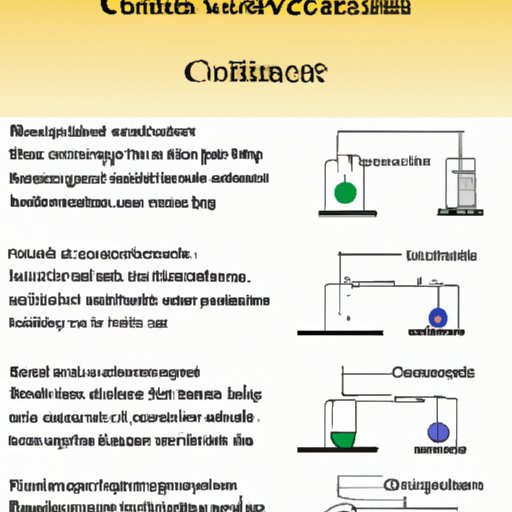Introduction
Control is a key element of scientific experiments that helps researchers draw valid conclusions from their data. The purpose of control in science is to isolate the variables being studied and to ensure that other factors do not influence the results. By controlling all other variables, scientists can accurately measure the impact of the variable they are studying.
The role of control in scientific experiments is to provide a baseline for comparison with the data collected from the experiment. In order to draw valid conclusions from the experiment, scientists must be able to compare the data collected from the experiment to the control. This comparison allows scientists to determine if the variable they are studying had any effect on the outcome of the experiment.

Types of Control Used in Science Studies
There are several different types of control used in scientific experiments, each offering its own unique benefits. The most common type of control is a placebo, which is an inert substance such as sugar or saline that has no effect on the outcome of the experiment. Placebos are often used in clinical trials to compare the effects of a drug or treatment to a control group.
Another type of control used in science studies is a positive control. A positive control is a substance or condition that is known to cause a certain result. For example, if a researcher was studying the effects of a new drug, they might use a positive control of a drug that is known to cause the desired effect. By comparing the results of the experiment to the positive control, the researcher can determine if the new drug is effective.
Finally, a negative control is a substance or condition that is known to have no effect on the outcome of the experiment. Negative controls are used to help researchers rule out any potential confounding variables that may be influencing the results of the experiment. By comparing the results of the experiment to the negative control, the researcher can determine if any other factors are having an effect on the outcome.
The use of control in scientific experiments is essential for drawing valid conclusions from the data. Without control, it is impossible to know if the results of the experiment are due to the variable being studied, or if other factors are responsible for the outcome. By utilizing control, scientists can accurately measure the effects of the variable they are studying.
Role of Control in Drawing Valid Conclusions
Control is essential for drawing valid conclusions from scientific experiments. Without control, it would be impossible to determine if the results of the experiment were due to the variable being studied, or if other factors were responsible for the outcome. By utilizing control, researchers can accurately measure the effects of the variable they are studying.
In addition to helping researchers draw valid conclusions from their data, control also helps to protect against bias. By controlling all other variables, researchers can ensure that the results of the experiment are not influenced by any outside factors. This helps to ensure that the results of the experiment are accurate and reliable.
For example, a study looking at the effects of a new drug on blood pressure would need to control for things like age, gender, diet, and exercise habits. If these variables were not controlled for, the results of the experiment could be skewed by outside factors, making it difficult to draw valid conclusions.
Conclusion
Control is an essential part of scientific experiments, helping researchers draw valid conclusions from their data. By controlling all other variables, researchers can accurately measure the effects of the variable they are studying. There are several different types of control used in scientific experiments, each offering its own set of benefits. Control is essential for drawing valid conclusions from scientific experiments, protecting against bias and helping to ensure the accuracy and reliability of the results.
(Note: Is this article not meeting your expectations? Do you have knowledge or insights to share? Unlock new opportunities and expand your reach by joining our authors team. Click Registration to join us and share your expertise with our readers.)
